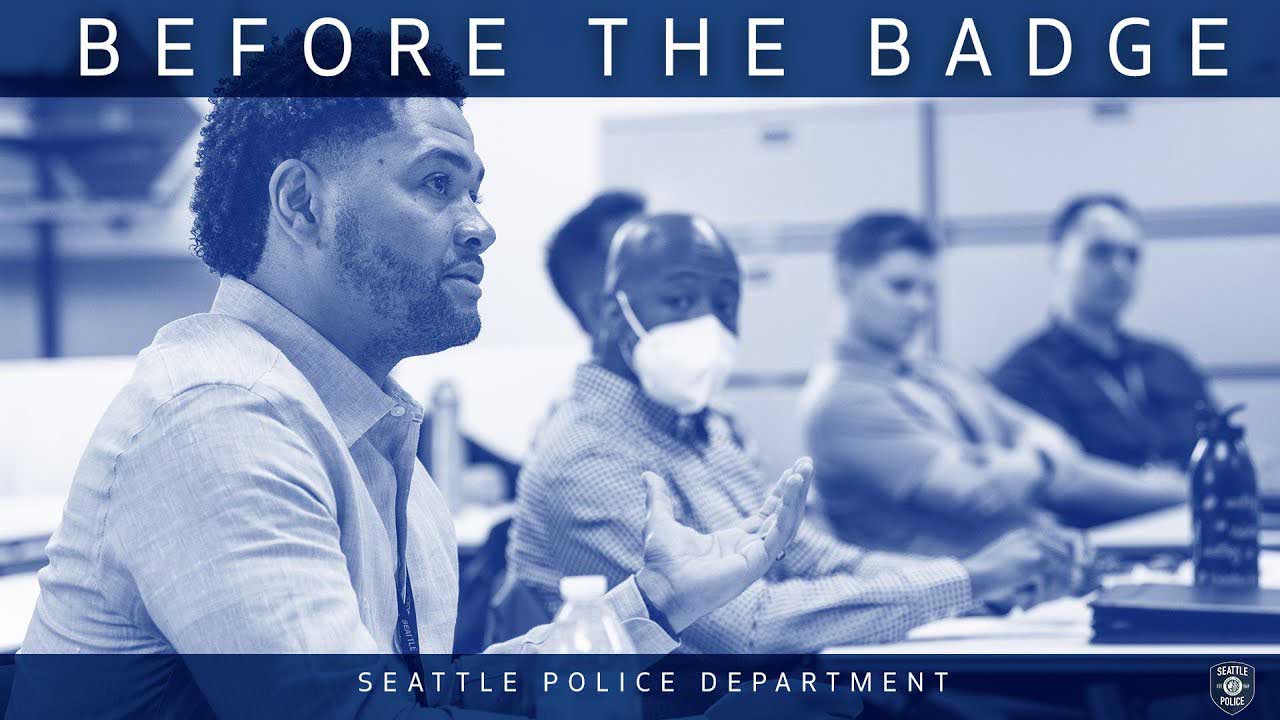Before the Badge

This project seeks to evaluate the effectiveness of the Seattle Police Department's Before the Badge training program.
In collaboration with a diverse group of community partners, and under the professional guidance of Seattle-based educators, this new curricula provides opportunities for recruits to immerse themselves '...in community-based, peer-based, and introspective experiences...'
- Police Recruits
- Police Training
- SPD MCPP
Last Modified: Tuesday, March 28, 2023
Executive Summary
This document is the first in a series of reports that reports the effects of the "Before the Badge" (BTB) program on Seattle Police Department (SPD) recruits through their training pre/post and 1-year/3-years post graduation. Group comparisons are made throughout multiple data collection points between SPD recruits (who complete the BTB program) and Non-SPD recruits (recruits from other law enforcement agencies who are enrolled in the Washington State Criminal Justice Training Commission's (WSCJTC) Basic Law Enforcement Academy (BLEA). The preliminary findings reported in this report reflect quantitative and qualitative data collected from surveys and interviews with 29 Washington State Criminal Justice Training Commission (WSCJTC) recruits prior to their initial training from September 01, 2022, through November 2022. The analyses conducted thus far are intended to serve as an initial snapshot of what will be a multi-phased approach to collecting longitudinal data on the effectiveness of the BTB program.
Purpose of Study
The purpose of this project is to evaluate the effectiveness of SPD's BTB training program. Following the national civil rights reckoning of 2020, and growing demands for police reform, this 45-day training program was developed by SPD's Chief Adrian Diaz and SPD personnel in collaboration with a diverse set of community partners and subject-matter experts. Through the longitudinal collection of evaluative data, results from this research have the potential to inform training practices, the evolution of, and improvements to law enforcement training within the Seattle Police Department and Washington State. Furthermore, this project contributes to academic literature on guardian law enforcement training, de-escalation and crisis intervention training, as well as alternative law enforcement training models.
Research Design
The current study employs a mixed-method research design. Data are collected at multiple points over a longitudinal period from surveys and interviews administered to new WSCJTC recruits (Seattle Police recruits and recruits from other agencies across the state. SPD-BTB recruits serve as the experimental group with Non-SPD recruits as the comparison group. Quantitative data is collected through the administration of a survey instrument developed from a prior project evaluating the guardian law enforcement training at the WSCJTC Basic Law Enforcement Academy (BLEA). The survey is comprised of three sections: 1) Background, 2) General attitudes, and 3) Crisis Intervention Team Training. Additionally, quantitative and qualitative data are collected through a multi-phase interview process conducted over Zoom. A summarization of the study's data collection points for the experimental and comparison group are outlined in Figure 1.
